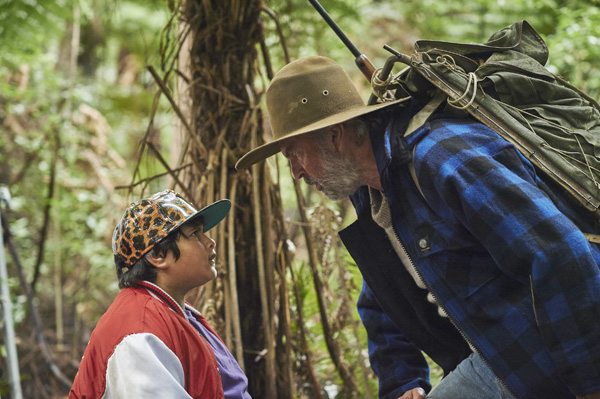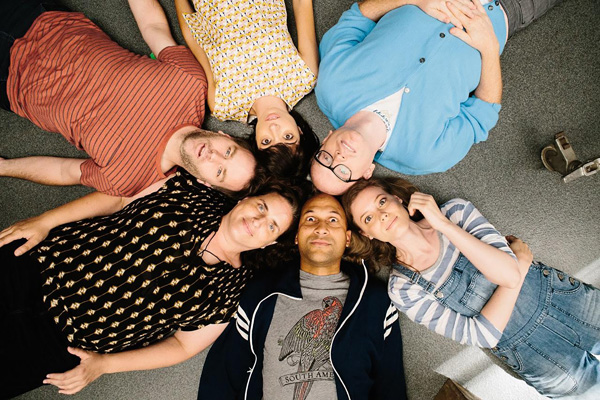In this roundup, the documentaries again outshine the narrative films by digging hard into their subjects and coming up with illuminating insights.
Centering on drone warfare, National Bird follows three people who were in the U.S. Air Force and worked in various capacities regarding the targeting and killing of insurgents. All three have since regretted their experience and have decided to go public about a murky and classified program. The film finds nothing positive or effective about using drones, and it also slowly and persuasively builds its case as it describes the effects of the Americans who were in the program and the civilian Afghans who were mistakenly bombed. As it contrasts the war’s effect on members of both societies, it builds a morbid symbiosis between the two cultures in a dance that does not end. As one dissenter states, “We are at war and we are disconnected from it. We are fighting through machines and wires. It doesn’t affect us. So why stop?” A powerful, timely film. FilmRise will release it this fall.
Memories of a Penitent Heart is an intimate family portrait and a mystery. It concerns the death of Miguel Dieppa, uncle of the filmmaker Cecilia Aldarondo. She barely knew him. He died when she was six, but he made a strong impression on her. He had moved to New York City from his native Puerto Rico to become an actor. A gay man, he died of AIDS in 1987, though his mother claimed it was cancer. His lover attended the funeral, but he was never mentioned by Miguel’s family afterwards.
Aldarondo is driven to track down that lover. She finds him pretty quickly. Robert has rejoined the Franciscan religious order, and as he speaks to Cecilia, it becomes clear that the intervening years have not assuaged the bitterness he feels for Miguel’s family and Cecilia’s grandmother in particular. And here is the meat of the story. Aldarondo ferries between her mother (Miguel’s sister) and Robert, trying to ferret some sort of truth and maybe some healing.
Miguel comes across as conflicted, raised by a very religious mother. Like so many who ventured to New York, he reinvented (and freed himself) as an actor and playwright. (Robert called him Michael.) However, he was occasionally ashamed of his gayness. He insisted on the most hetero roles in the plays he wrote. In fact, what makes this film so wonderful is how well Aldarondo brings out the humanity of her subjects (including herself) and how she zeros in on the conflict and the damage done to her family during the height of the AIDS crisis. This is but one story of the prejudice of the era. You chat with folks who made it through that time, you will hear variations of this narrative over and over again.
Hunt for the Wilderpeople was written and directed by Taika Waititi, who was also responsible for last year’s ingenious vampire mock-doc What We Do in the Shadows. Hunt concerns a young foster child named Ricky who is placed in the care of Bella and Hec. They own a farm on the hinterlands of New Zealand bordering the forest, i.e., the bush. Bella takes to Ricky immediately, but Hec, played by the always dependable Sam Neill, is a crusty old codger who has no use for city kids cause he’s too busy in the bush hunting boar and such. Bella dies suddenly, and Hec, afraid of going back to jail, and Ricky, attempting to avoid the clutches of child services, reluctantly take to the bush pursued by a relentless child protection agent with delusions of grandeur (played with great comic gusto by Rachel House).
So, you already see the clichés coming right down the highway toward you, which is fine. The real problem is the tone. Waititi feels uncomfortable with sentimentality, yet there are great dollops of it that sit side by side with broad comedy and with some sharp social satire. There’s a subplot regarding a potential love interest for Ricky that is clumsily put together, and the whole thing runs too long by a good 20 minutes. Still, there are some wonderful moments: at Bella’s funeral, Ricky explaining very badly to some hunters that Hec did not kidnap him, and a harrowing moment with a wild boar. Any fan of the fantastic Sam Neill should check it out.
Don’t Think Twice concerns an improv group that has been together for years and considers themselves a family. Just as they are forced to vacate the theater where they’ve been putting on shows for the better part of a decade, one of the members hits the jackpot, getting hired by Weekend Live (i.e., Saturday Night Live), which brings out the latent jealousies and self-doubt of the others in the troupe. Mike Birbiglia directs and stars as a teacher who consistently watches his flock gain recognition while he toils in mediocrity and lives in an apartment that would give a recent college grad pause.
For the first hour, Birbiglia’s right on track. He has a feel for this environment and isn’t afraid to lift the bark and expose his characters’ flaws. And he’s got a great cast, including Gillian Jacobs from Community and Keegan-Michael Key from Key & Peele. He builds on the tension and drama while doling out laughs, but the last half hour dives into sentimentality and ends up feeling like a Hallmark movie of the week. Everyone learns something, and they all get together one last time. Out of five character arcs, only one ends up seeming truthful and honest. The movie is still worth seeing for the insight Birbiglia has for struggling artists in New York and because his film has a nice, low-key charm, but one wishes he had trusted his story and his characters enough to have given them the ending they deserved, even if they didn’t like it.
Hunt for the Wilderpeople and Don’t Think Twice will be released this summer.








Leave A Comment